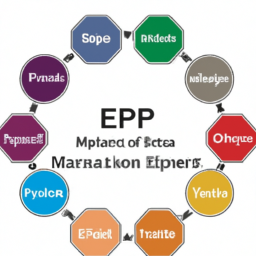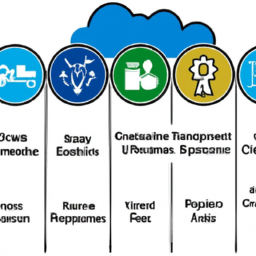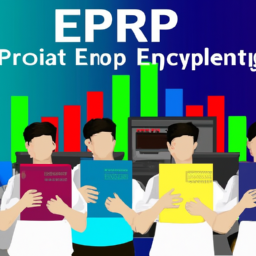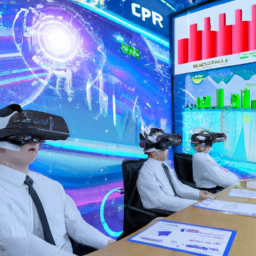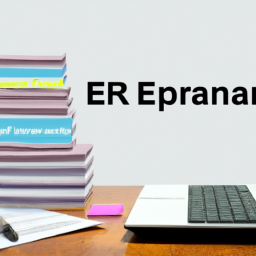So, you think you’re ready to conquer that ERP exam? Think again. The road to success in these exams is paved with challenges and complexities that can leave even the brightest minds feeling overwhelmed.
But fear not, for you hold in your hands the ultimate ERP exam study guide – your key to unlocking the secrets of mastery. This guide will equip you with the essential concepts, effective study techniques, and invaluable resources needed to navigate the treacherous terrain of ERP exams.
Get ready to embark on a journey that will transform you into an ERP exam conqueror.
Key Takeaways
- Integration, automation, real-time data analysis, and data flow across departments are key ERP concepts to master.
- Effective study techniques for ERP exams include mnemonic devices, practice questions, group study, and active learning.
- Essential resources for ERP exam preparation include online tutorials, practice exams, in-depth explanations and guidance, and a simulated exam environment.
- Tips for managing time and stress during ERP exams include prioritizing study materials, creating a detailed schedule, utilizing effective study techniques, and allocating time for breaks to avoid burnout.
- Strategies for maximizing your score on ERP exams include having a solid exam preparation plan, a study schedule that covers all necessary material, prioritizing challenging topics, practicing with past exam papers and sample questions, and avoiding common mistakes such as rushing, not reading carefully, and poor time management.
5 Key ERP Concepts to Master
Key ERP concepts that you need to master include integration, automation, and real-time data analysis.
When it comes to ERP implementation challenges, one of the most crucial aspects is data integration. ERP systems rely on the seamless flow of data across various departments and functions within an organization. Without proper integration, the effectiveness of the ERP system can be severely compromised.
Data integration ensures that information is shared accurately and efficiently, enabling streamlined processes and informed decision-making. It allows different modules of the ERP system to communicate with each other, preventing data duplication and inconsistencies.
Furthermore, data integration enables real-time data analysis, which is essential for monitoring performance, identifying trends, and making timely adjustments.
Effective Study Techniques for ERP Exams
For effective study techniques on ERP exams, you’ll want to prioritize active learning and practice questions. Active learning techniques involve engaging with the material actively rather than passively listening or reading. Here are some techniques you can try:
- Mnemonic devices: Use acronyms, rhymes, or visualization to remember complex concepts or lists.
- Practice questions: Solve practice questions regularly to reinforce your understanding and identify areas of weakness.
- Group study: Collaborate with classmates to discuss and explain concepts, enhancing your understanding through peer teaching.
Active learning techniques not only help you understand the material better but also improve your retention and recall during the exam. By actively engaging with the content, you’ll be better prepared to answer questions accurately and efficiently.
Now, let’s move on to the essential resources for ERP exam preparation.
Essential Resources for ERP Exam Preparation
Now, let’s take a look at some essential resources that can help you prepare for your ERP exam.
Online tutorials and practice exams are two valuable tools that can significantly enhance your study experience.
Online tutorials provide in-depth explanations and step-by-step guidance on various ERP topics. These tutorials are often created by experts in the field, ensuring that you receive accurate and reliable information. They are designed to cater to different learning styles, making it easier for you to grasp complex concepts.
Practice exams, on the other hand, allow you to assess your knowledge and identify areas that need improvement. They simulate the actual exam environment, helping you familiarize yourself with the format and time constraints. By regularly practicing with these exams, you can build your confidence and improve your chances of success on the ERP exam.
Tips for Managing Time and Stress During ERP Exams
To effectively manage your time and reduce stress during ERP exams, prioritize your study materials and create a detailed schedule. Here are some tips to help you with time management and stress reduction:
- Prioritize your study materials: Identify the most important topics and allocate more time to study them thoroughly.
- Create a detailed schedule: Break down your study time into smaller, manageable chunks. Set specific goals for each study session and allocate time for breaks to avoid burnout.
- Utilize effective study techniques: Use active learning strategies such as flashcards, practice exams, and group discussions to maximize your understanding and retention of the material.
By implementing these time management strategies and finding effective ways to reduce stress, you can create a study routine that is both efficient and manageable.
Now, let’s explore strategies for maximizing your score on ERP exams.
Strategies for Maximizing Your Score on ERP Exams
By implementing effective strategies, you can greatly increase your score on ERP exams. To maximize your score, it is crucial to have a solid exam preparation plan in place.
Start by creating a study schedule that allows for ample time to review all the necessary material. Prioritize the topics that you find most challenging, as this will ensure that you allocate enough time to fully understand and memorize them.
Another important strategy is to practice with past exam papers and sample questions. This will familiarize you with the exam format and help you identify areas where you need improvement.
Additionally, it is essential to avoid common mistakes during ERP exams. These include rushing through questions, not reading them carefully, and neglecting to manage your time effectively.
Frequently Asked Questions
What Are Some Common Challenges Faced by Students When Studying ERP Concepts?
When studying ERP concepts, students often face challenges with time management and understanding complex terminology. It can be difficult to allocate enough time for studying while balancing other responsibilities.
Additionally, the technical jargon used in ERP can be overwhelming and confusing at first. However, with proper strategies for time management and breaking down complex concepts, these challenges can be overcome.
Are There Any Recommended Online Forums or Communities for Discussing ERP Exam Preparation Strategies?
Looking for a place to discuss ERP exam preparation strategies? You’re in luck!
Online communities are a treasure trove of valuable insights and support. From forums to social media groups, there’s a space for every type of learner.
Connect with fellow students, share study strategies, and learn from each other’s experiences.
These communities are a goldmine of knowledge waiting to be explored. So dive in and get ready to conquer your ERP exam!
How Can I Effectively Balance Studying for ERP Exams With Other Academic or Professional Commitments?
To effectively balance studying for ERP exams with other commitments, prioritize your time and develop effective study techniques.
Start by creating a schedule that allows for dedicated study periods. Break down the material into manageable chunks and utilize active learning techniques, such as self-quizzing or teaching the material to someone else.
Eliminate distractions and focus on one task at a time. Remember, effective time management and study techniques are crucial for success in balancing academic or professional commitments.
Are There Any Specific Techniques or Resources That Can Help Improve Memory Retention of ERP Concepts?
To improve memory retention of ERP concepts, try using the Pomodoro Technique. Set a timer for 25 minutes and focus solely on studying. Take a 5-minute break, then repeat. This technique improves concentration and prevents burnout.
Additionally, effective note-taking techniques can aid in memory retention. Summarizing key points and using visual aids are two examples of effective note-taking strategies.
What Are Some Common Mistakes That Students Make During ERP Exams and How Can They Be Avoided?
Common mistakes during ERP exams can hinder your success. To avoid these pitfalls, it’s crucial to be well-prepared.
Many students make the error of not thoroughly understanding the exam format and requirements. By familiarizing yourself with the structure and content, you can allocate your time wisely.
Another mistake is rushing through questions without fully comprehending them. Take your time, read carefully, and answer thoughtfully.
Conclusion
In conclusion, you’ve now embarked on the path to success in your ERP exams. By mastering the 5 key ERP concepts, utilizing effective study techniques, and utilizing essential resources, you’ve equipped yourself with the tools needed to excel.
Remember to manage your time wisely and keep stress at bay during exams. By implementing these strategies, you’ll maximize your score and achieve the ultimate victory.
Like a skilled painter who meticulously blends colors to create a masterpiece, you’ve skillfully crafted your path to success in the world of ERP exams.


